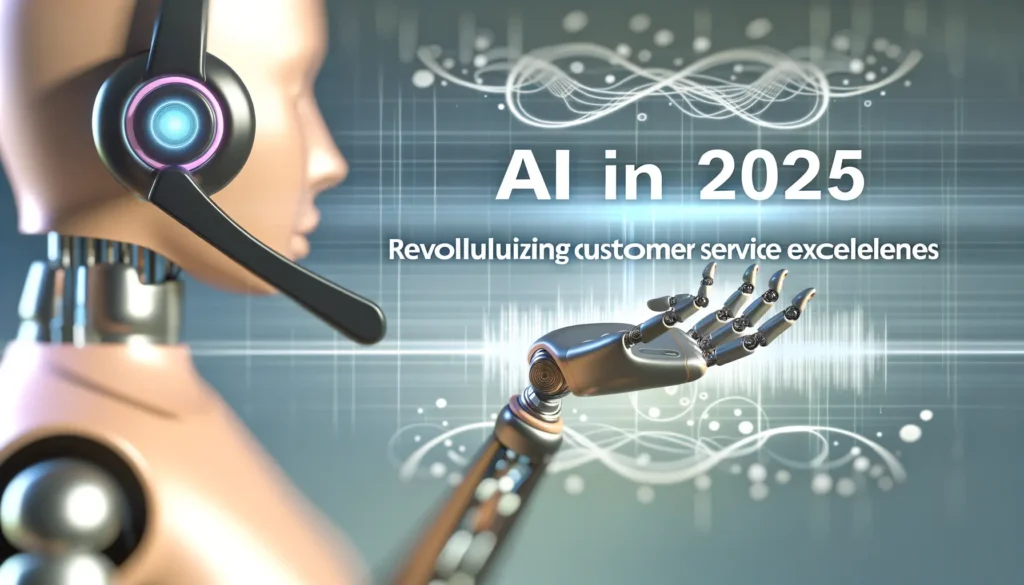Introduction
As we delve deeper into 2025, Artificial Intelligence (AI) continues to redefine industries, with customer service standing at the forefront of this transformative wave. Companies worldwide are leveraging AI to reinvent how they interact with customers, promising faster, more efficient, and personalized service experiences. The ability of AI to understand and predict customer needs is revolutionizing traditional customer service methodologies. This article explores the different ways AI is transforming customer service by improving response times, personalizing customer interactions, integrating seamlessly with human agents, and predicting customer needs. Through these advancements, businesses can enhance customer satisfaction, loyalty, and operational efficiency, steering towards a future where AI and human agents work collaboratively to meet customer demands seamlessly.
Revolutionizing Response Times
One of the most significant impacts AI has on customer service is its ability to drastically improve response times. AI-powered chatbots and virtual assistants can manage an influx of customer queries, providing immediate responses and solutions. Unlike their human counterparts, AI systems operate 24/7, handling customer issues beyond regular business hours. This constant availability not only meets the immediate needs of customers but also reduces the workload on human agents who can then concentrate on more complex issues requiring empathy and intricate problem-solving. By minimizing wait times, AI ensures customers receive timely assistance, which is a critical component of customer satisfaction.
Enhancing Personalization
AI’s ability to personalize customer interactions has taken customer service to unprecedented levels. Through machine learning and natural language processing, AI systems can gather, analyze, and decipher vast amounts of customer data to tailor interactions. This technology allows for the creation of personalized journeys where customer preferences and previous interactions are taken into account, leading to experiences that are uniquely tailored to each individual’s needs and desires. Brands that can effortlessly deliver such customized services see higher customer engagement and loyalty, as clients often respond positively to recommendations and solutions that feel uniquely suited to them.
Collaborative Intelligence between AI and Human Agents
The integration of AI in customer service does not signal a replacement of human agents but rather a harmonious collaboration. AI handles routine, repetitive tasks, while human representatives focus on complex issues that require emotional intelligence and intricate problem-solving capabilities. AI systems can augment human agents by providing real-time data and insights during customer interactions, resulting in more informed and efficient service. The synergy between AI and human agents not only optimizes the customer service process but also enhances the job satisfaction of human employees by freeing them from mundane tasks, allowing them to engage in more fulfilling roles.
Predicting Customer Needs
AI’s predictive capabilities herald a new era of preemptive customer service. By analyzing past interactions and transaction data, AI systems can anticipate customer needs and behaviors, providing proactive solutions before issues arise. This innovation allows businesses to adopt a more anticipatory approach, significantly improving customer satisfaction as issues are resolved before customers even become aware of them. Moreover, predictive analytics helps companies to tailor marketing strategies and product development to align with anticipated consumer trends, strengthening the overall customer relationship and driving business growth.
Conclusions
In conclusion, AI is a transformative force in the field of customer service as we step into 2025. It enhances response efficiency by addressing customer issues 24/7, ensures personalized customer interactions by utilizing advanced data analytics, and strengthens the collaboration between AI and human agents, thereby optimizing service delivery. Furthermore, AI’s ability to predict customer needs positions businesses to proactively enhance customer satisfaction and loyalty. As AI continues to evolve, it holds the promise of increasingly sophisticated tools and strategies that will redefine the customer service landscape, underscoring its centrality to business operations and customer engagement in the digital age.
